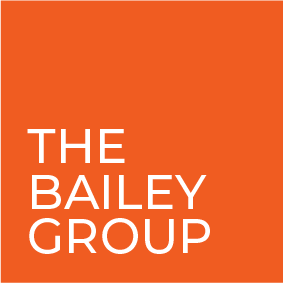
The right assessment for the right purpose. Choose carefully!
The Bailey Group is often asked if we use assessments (like the Myers-Briggs, DISC, Strengthsfinder, the Hogan Suite, or 360's) to help leaders and teams thrive and grow. And yes, we do. Assessments like these are fabulous insight tools—that is, they provide a common framework by which to understand oneself and one's co-workers—to gain a baseline picture of how people get things done, get along with others, solve problems, communicate, and on and on. Understanding similarities and differences between people is critical to building a diverse and effective team as well as identifying strengths and potential areas for growth. The Bailey Group staff is certified to use a number of assessments and we have been able to help you choose the best one for your leadership, team and/or organizational goals.
If you are interested in contacting us about our assessment's services, here are some questions to consider:
- What is your organization's experience with using personality/leadership assessments? How have the results of those previous assessments been shared/used with the organization? There are a variety of different assessments—some for development, diagnostics, placement, pre hire fit and/or just for fun. We can help you choose the appropriate assessment for your needs.
- What is your purpose/outcome for using the assessments now? To help individuals learn more about themselves, their co-workers, or team as a whole? Is it to identify growth areas for an individual or team? Is it to deepen relationships and improve communication/interactions? Is to predict an individual "fit" for a job or position? There are many purposes to using assessments and we can make sure you are choosing the right ones to achieve YOUR ultimate goals.
- What are the short term and long-term goals that you hope to reach? Assist an individual's over-all self-awareness that leads to professional development? Develop a high potential leader? Align an individual's strengths, values, development areas and aspirations for their career WITH the organization's needs? Get a picture of how well a team is functioning at the moment? Improve the effectiveness of a team? Conflict resolution? Build or rebuild trust among team members? There are many goals for using assessments—many of which are appropriate, but we want to help you choose the assessment AND the right way to use them—that will help you accomplish what you want to accomplish.
I guess my point is assessments are a TOOL, but not the-all, end-all. Many individuals have had an experience where they have taken a particular assessment and the results have been "life-changing." They have understood themselves and others more clearly and been able to apply those insights to make changes that have benefitted them personally and professionally. And because of this experience, they hope/assume that EVERYONE will have the same outcome just by taking the assessment. That, however, is not always the case. We will help you understand your WHY for assessments and guide you to create the appropriate processes that match that why.
As tools, not all assessments are created equal. Some are appropriate for personal growth but NOT for selecting/predicting on-the-job behavior. Some assessments have been validated to be used cross-culturally, to be legally defensible if used for the right purpose in the right way. Others, however, are not. What, if any, bias may be inherent in the assessment you are considering.
Lastly, be careful and choiceful about what will be done with assessments after individuals take them. Determine who "owns" the results of the assessments and who gets to see them. When an individual chooses to take an assessment, they are opening themselves up to information that could be positive, neutral, painful, or even harmful. Assessment results can be misinterpreted, over generalized, and/or used inappropriately. Take care that anyone who takes an assessment gets a skilled interpretation by a qualified individual—so that they can truly understand what the feedback IS and IS NOT saying. And make sure ONLY the people who SHOULD and NEED to see the results and are qualified to interpret the results accurately get to see them.
Yes, assessments are a great tool. They have enabled individuals, leaders, teams, and entire organizations learn and grow, as well as gain an understanding of those different from themselves. But they are not always applied. Just taking an assessment and reading the results guarantees nothing except someone has taken a "test" and received some feedback. Some individuals do not understand the feedback given or cannot apply it. Some don't believe the feedback is accurate. Some are skeptical and distrustful of the whole process of assessment—no matter what they are told or promised. And, even if someone agrees with some feedback they are given, they may never choose to act or think differently because of it.
And lastly, getting the feedback from assessments in interesting and at times, insightful. But if this feedback is "put on the shelf" (as the assessment reports literally are), and not reflected upon and applied –or even referred to again, your organization is losing value from your investment in assessments.
The Bailey Group wants individuals and organizations who use assessments (and hundreds of thousands do) to be valuable and worth the investment. If you currently use assessments or are considering doing so, we hope these questions help you reach your goals. Not sure, give me a call.




